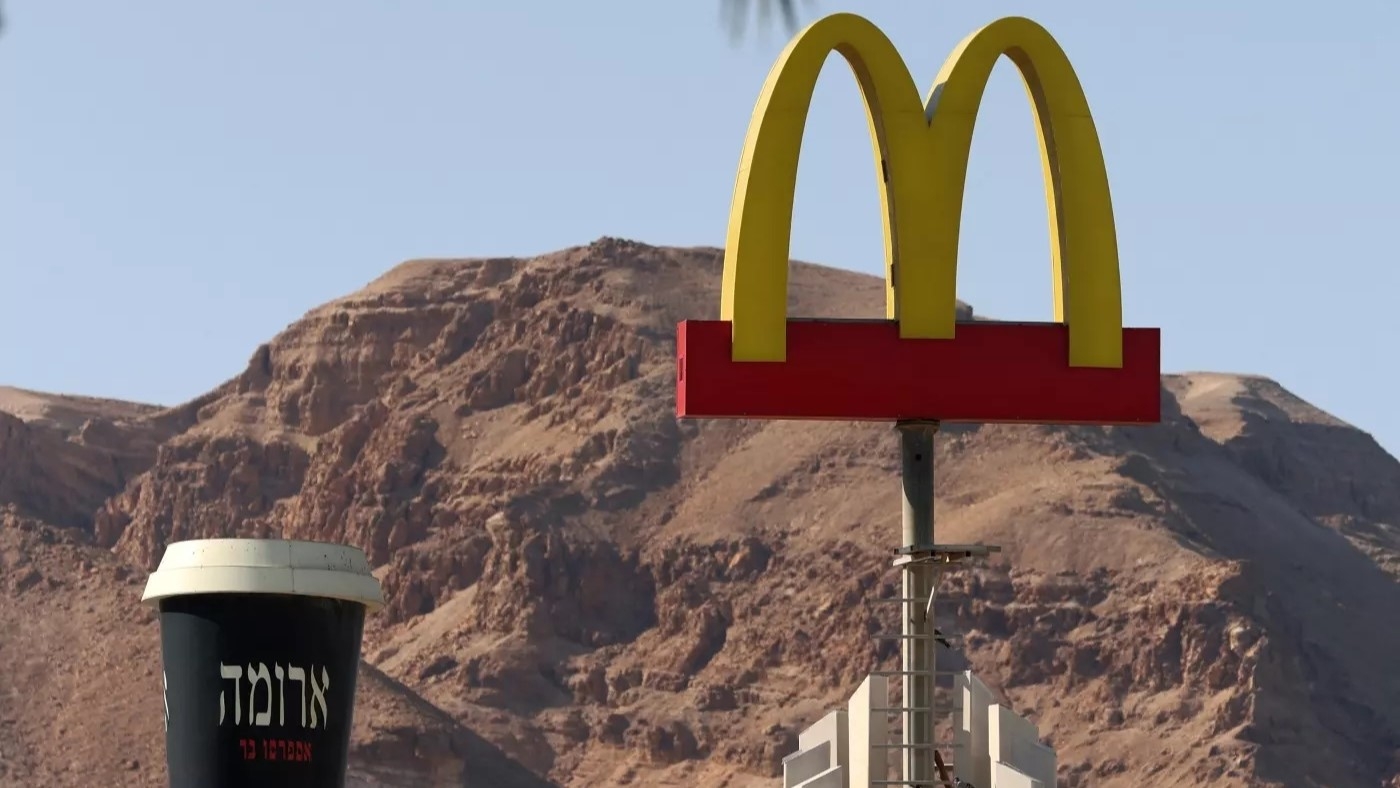Israel-Palestine war: McDonald's branches back different sides

Global fast food giant McDonald’s has been drawn into the ongoing Israel-Palestine war, with regional branches providing support or free meals to different sides of the conflict.
McDonald’s in Israel began providing free food to members of the Israeli military earlier last week while branches in several Muslim-majority countries have sent aid to Gaza.
On Thursday, McDonald’s Israel said it was giving thousands of free Big Macs and french fries to hospitals and military units in the Israeli army. It said that it had even opened five new restaurants just to fulfil its pledge.
That decision prompted a backlash from supporters of the Palestinian cause, and many took to social media to voice their fury.
On X, formerly known as Twitter, #BoycottMcDonalds was trending and influencers began sharing videos of themselves calling for a boycott.
New MEE newsletter: Jerusalem Dispatch
Sign up to get the latest insights and analysis on Israel-Palestine, alongside Turkey Unpacked and other MEE newsletters
In one such instance, Shazil Khan, a Pakistani politician belonging to former prime minister Imran Khan’s Tehreek-e-Insaf party, called on his followers to avoid eating at McDonald's.
On Friday another Pakistani, the musician Omar Malik, recorded a video asking his followers to boycott McDonald’s.
As such calls grew, the Pakistan branch of McDonald’s released a statement on Saturday distancing itself from McDonald’s Israel, which it described as a “locally-owned (Israeli) enterprise”.
McDonald's Malaysia also issued a statement describing itself as a "100 percent Muslim-owned entity".
McDonald’s Corporation is owned by shareholders, and most branches have a different owner in each country. This means McDonald’s in different countries operate autonomously from one another.
On Friday local media reported that pro-Palestinian groups attacked a McDonald’s restaurant in Lebanon.
There were reportedly no injuries - and McDonald’s Lebanon issued a statement afterwards affirming that the position of McDonald’s franchisees in other countries “does not represent the views or positions of McDonald’s Lebanon in any way”.
That same day, McDonald’s Turkey issued a statement saying it was sending $1m to the victims of war in Gaza.
Follow Middle East Eye's live coverage for the latest on the Israel-Palestine war
On Saturday, McDondald’s Kuwait announced that it donated $250,000 to relief efforts in Gaza.
McDonald’s Oman released a statement later the same day saying that what McDonald’s Israel did "was an individual and private act, and not with the approval or direction of the international company or any other licensee, especially in our Arab world".
It issued a prayer for “God Almighty to protect our beloved country and all Arab and Muslim countries from all the evil and hate”, and announced it had donated $100,000 towards relief efforts in Gaza.
Qatar's branch, meanwhile, launched a campaign to provide “urgent food aid, water, shelter and care to meet the basic needs and provide relief to the Palestinian people of Gaza”. The branch announced that it would donate 1 million riyals ($274,000) to the cause.
McDonald’s UAE added that it was “deeply saddened by the events in the region” and announced a donation of 1 million dirhams ($272,000) to Emirates Red Crescent’s campaign for Gaza. On Sunday, Saudi Arabia’s branch said it is giving $533,000 to Gaza.
Branches in Egypt, Jordan and Bahrain have likewise announced that they are donating money to Gaza.
In 1996 the American columnist Thomas Friedman came up with the “Golden Arches Theory of Conflict Prevention”. He argued that no two countries that have McDonald’s would go to war with each other.
Such countries are sufficiently prosperous and globally integrated, Friedman said, that people “don’t like to fight wars. They like to wait in line for burgers.”
So far, McDonald’s branches in the US and European countries have issued no statements on the issue.
Middle East Eye delivers independent and unrivalled coverage and analysis of the Middle East, North Africa and beyond. To learn more about republishing this content and the associated fees, please fill out this form. More about MEE can be found here.




